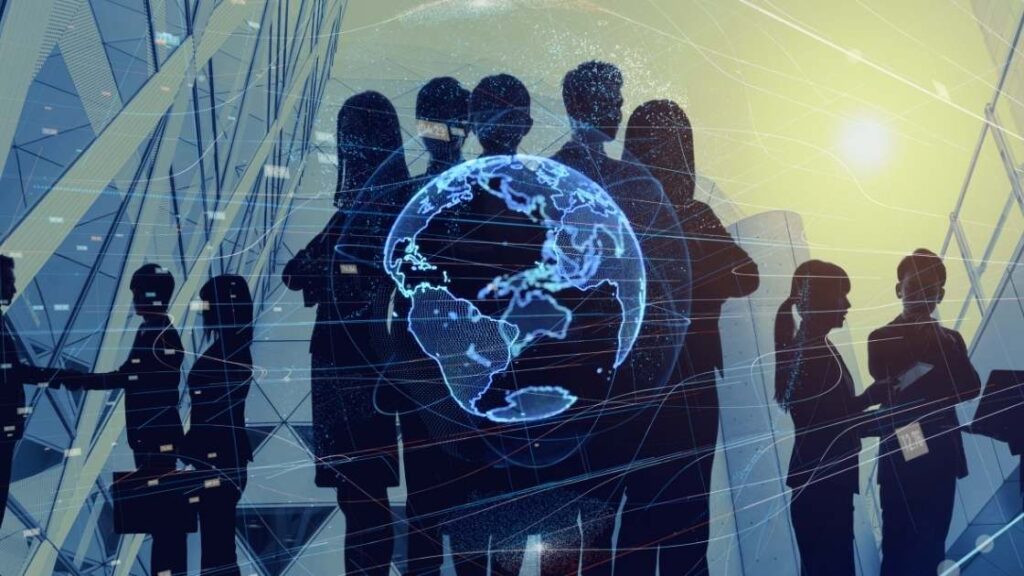In our rapidly changing and connected world Diversity and inclusion are now essential factors in a prosperous and dynamic workplace. This is no longer an issue of social responsibility. It’s an essential strategic requirement. Companies that place a high value on inclusiveness and diversity will gain in a variety of ways. This article explains the main reasons that inclusion and diversity within the workplace is essential in fostering creativity, increasing productivity, as well as increasing involvement.
Table of Contents
What Is The Difference Between Diversity And The Concept Of Inclusion?
In the context of diversity, it is about diversity or composition in an organization, inclusion is the extent to which the contribution, contributions as well as the perspectives of diverse kinds of people are valued and are incorporated into the overall context.
If the environment is home to a broad variety of races, genders as well as nationalities and sexual orientations, but certain groupings are able to influence or rule and show diversity, the environment may be diverse however it is not inclusive.
What Is It Exactly That We Refer To As Diversity And Inclusion At Work?
An office can be described as multicultural and inclusive if it makes sure that each person regardless of backgrounds or roles within the organization, enjoys the same level of involvement and assistance across the entire workplace. This inclusiveness extends into “all different areas” is essential.
Do you promote diversity, and inclusion not just through your hiring but also in each department as well as at the leadership level? Perhaps your workplace displays diversities, like having a 50 percent female staff, and yet the women do not hold management positions? You might have a large number of people of color however they are primarily restricted to a particular department?
Why Is Diversity And Inclusion In The Workplace Important?
Fostering Innovation

The diversity of the workplace fosters the ability to innovate. If employees with different backgrounds, experiences and viewpoints work together, the possibility of creative thinking and innovative ideas increases. Teams that are diverse approach problems in a variety of ways that often lead to better and more innovative solutions. The diversity of the workforce makes sure that organizations don’t get trapped in the rut of “groupthink,” where ideas get stagnant and dull.
Attracting The Best Talent

To remain competitive, organizations need to attract and keep the top talent. If an organization is open to diversity and inclusion it communicates to potential employees that they’re welcomed as well as valued and appreciated. It also aids in attracting the best talent from a diverse range of applicants, since those from diverse backgrounds will be more likely to pursue opportunities in diverse organizations.
Promoting Engagement Of Employees

It creates a sense of belonging to employees. If employees feel valued and accepted, they’re more likely to feel engaged at work, which results in higher satisfaction at work as well as productivity. In addition, an inclusive workplace lowers the chance of harassment, discrimination or discrimination, which could affect employee morale as well as general team dynamics.
Better Decision Making

Teams with diverse perspectives tend to make better decisions. In the event that different viewpoints are considered the discussions become more rich and the probability of making informed choices grows. They are also more accurate to reflect the diversity of customers and of the actual world. This helps organizations deal with complicated issues and change market dynamics better.
Improving Customer Relations

An employee pool that is diverse is more able to comprehend and communicate with a broad client base. It gives you an edge when it comes to reaching out to people from diverse experiences. Customers are more likely to join a company who values diversity and inclusiveness because it shows respect and appreciation for their personal experience.
Worldwide Expansion As Well As Adaptation

In today’s increasingly globalized environment companies need to be able to grow and be able to adapt to different markets. A diverse workforce will help organizations understand and adapt to the norms, customs and requirements of various countries, making expansion more successful as well as culturally sensitive.
Legal And Ethical Compliance

The compliance with diversity and inclusive rules and standards isn’t only a legal obligation, as well as an ethical requirement. Businesses that don’t accept diversity and inclusion could confront legal problems and do harm to their image. In contrast businesses that take the initiative in establishing an inclusive work environment are able to stay clear of legal challenges and keep a good public image.
Long-Term Sustainability

Companies that place a high value on diversity and inclusiveness are more likely to be positioned to sustain their long-term viability. The workforce of diverse backgrounds is more flexible and resilient and is vital for a constantly changing business environment. Businesses that can adapt to the changing patterns of globalization and demographics are able to remain viable and competitive in the long run.
Conclusion
In the current dynamic and connected industry the importance of diversity and inclusion at workplaces aren’t just terms used in the media, they’re crucial for the success of an organization. Promoting innovation and attracting the best talent, increasing employee engagement, enhancing the process of making decisions and connecting with customers from all over the world are among the many advantages that are associated with the importance of diversification and inclusion. Companies that adopt these principles are more likely to achieve longevity in an ever-changing, increasingly international landscape.
Also Read : 10 Essential Leadership Skills for the Modern Workspace


